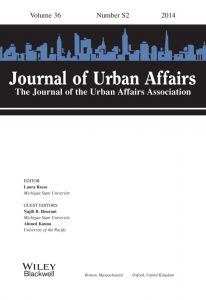Social Media: Have We Built a Society without Closets?
 Today, we are all familiar with with what it means to be closeted. In fact, coming out has become among our most widely recognized cultural narratives. No doubt, large swaths of the American landscape still present environments hostile to sexual preferences that deviate from prevailing hetero-patriarchical norms, but progressive circles, and increasingly, society writ large, have embraced the belief that coming out (i.e., rending oneself visible) is the road to empowerment. If this is true, the queer community should be more empowered than ever. Social media allows for unprecedented levels of visibility. Broadcasting your sexual preferences to the world is never more than click away.
Today, we are all familiar with with what it means to be closeted. In fact, coming out has become among our most widely recognized cultural narratives. No doubt, large swaths of the American landscape still present environments hostile to sexual preferences that deviate from prevailing hetero-patriarchical norms, but progressive circles, and increasingly, society writ large, have embraced the belief that coming out (i.e., rending oneself visible) is the road to empowerment. If this is true, the queer community should be more empowered than ever. Social media allows for unprecedented levels of visibility. Broadcasting your sexual preferences to the world is never more than click away.
I, for one, am dubious as to the promise of ever-greater visibility for the queer community and its political struggles. And, I am not alone. In 1999, Steven Seidman, Chet Meeks, and Francie Transchen wrote and essay entitled, “Beyond the Closet,” in which they argued that the closet is not merely a symbol of oppression, but also serves to create an important space for safe experimentation. Their call for ambivalence toward the closet was simultaneously a critique of the culture of visibility – of “mass exhibitionism.”
Queer youth in the latter several decades of the 20th Century famously fled the pastoral trappings of their hometowns to form accepting urban communities. In doing so, they were able to escape the normalizing gaze of their families, teachers, and other locals. Newfound anonymity (invisibility?), in essence, gave these youth the freedom to establish their own identities and, ultimately, the confidence to assert these identities in the face of others’ opposition.
Social media, however, is a technology that allows for all those people who we know or, even, don’t know, to project their gaze on us, reaching across continents. Because the closet only exists out of sight, social media, as a gaze-enhancing technology, threatens the very existence of the closet itself. For this reason, the queer community may have more at stake in the politics surrounding these newly emerging technologies than other groups, particularly with respect to privacy debates. We must ask ourselves: What can be done to create a queer-friendly Internet?
While these issues might be most salient for the queer community, the metaphor of the closet speaks to us all. We all have our own closets. These closets help us to discover who it is we want to be and give us the freedom undergo the process of change. I do not want to sound overly pessimistic. Social media does also serve as a tool to build and maintain sub-communities, connecting people with similar experiences in ways that might not otherwise be possible. What I take issue with is the notion that greater visibility is always better for individuals or communities. In an age of hyper-visibility, closets might actually be worth fighting for.




1530-2415/asset/SPSSI_logo_small.jpg?v=1&s=703d32c0889a30426e5264b94ce9ad387c90c2e0)

what about Craigslist Personals as an important site of anonymous (that is, non-visible, closeted) experimentation, especially with respect to sex and sexuality? is it more fair to say the the social web has allowed for BOTH the possible contraction and expansion of closet-areas in our lives? ~nathan
I would argue that the threat to is not social networking as a general concept, but social networking in its specific current most widely used form, i.e., Facebook. We’ve almost forgotten now but in 2006 a Facebook user could control who saw their photos, status updates, and friends list. The privacy settings were gradually eroded to the point that we now accept that we have no control over who can see our data – Facebook forces us out of our closets. But it doesn’t have to be this way. Users of (blogging and social nerworking sites) Livejournal and Dreamwidth have absolute control over who sees their posts – people post very personal stuff which they make visible only to a select circle of friends, while less-sensitive posts can be made readable to a wider group, or by everyone. People can decide exactly when to be in or out of the closet, they can have several closets if they like, and this allows a level of sharing, exploration, and safety, that isn’t possible on Facebook. I think it’s sad that we simply accept Facebook’s violation of our privacy as if it were inevitable, rather than getting angry about it and switching to a different social networking site. However the Diaspora project is due to release a beta version of their secure, privacy-aware social networking tool in September, and I’m (perhaps naively) hopeful that this will help help bring about a shift toward a greater expectation of privacy and control over our data.
Jen,
I absolutely agree with your point about privacy. I, too, hope Diaspora and similar efforts open the door to a new way of thinking about social media (see my previous post: http://thesocietypages.org/sociologylens/2010/05/17/facebook-fatigue-and-privacy-panic-has-the-golden-age-of-social-media-ended/).
Nevertheless, there is a very real culture shift toward the embrace of hyper-visibility, especially for young people (even if they are also the most likely to manipulate privacy settings). ALL for-profit, and, perhaps, most non-profit, platforms have a vested interest in information sharing. It is the basic source of their revenue and/or social significance. The underlying structure of these organizations is exerting great pressure on our culture to move toward ever-greater openness.
My hope, and my concern, is that we have a dialogue about what to this hyper-visibility means to us as individuals and to our other values. Particularly, because if we believe we ought to resist it (in part or in whole) it means taking on this now behemoth social machinery that constitutes online social networking.
I very much appreciate you insightful comments.
Best,
~PJ
Jen;
Facebook does have settings where you can choose which groups of friends (or strangers and networks)can see photo albums, photos you are tagged in, notes and status updates.
Just for example, I have a list called “family” which I put all my older relatives in. This list by default does not see my status updates, posts, or photos I upload/am tagged in, unless while creating those things I select to make it visible to them. You could also make it so that your “info” tab is only able to be seen by certain groups. Another example, only friends can see my personal information, and only certain groups of those friends can see my contact information.